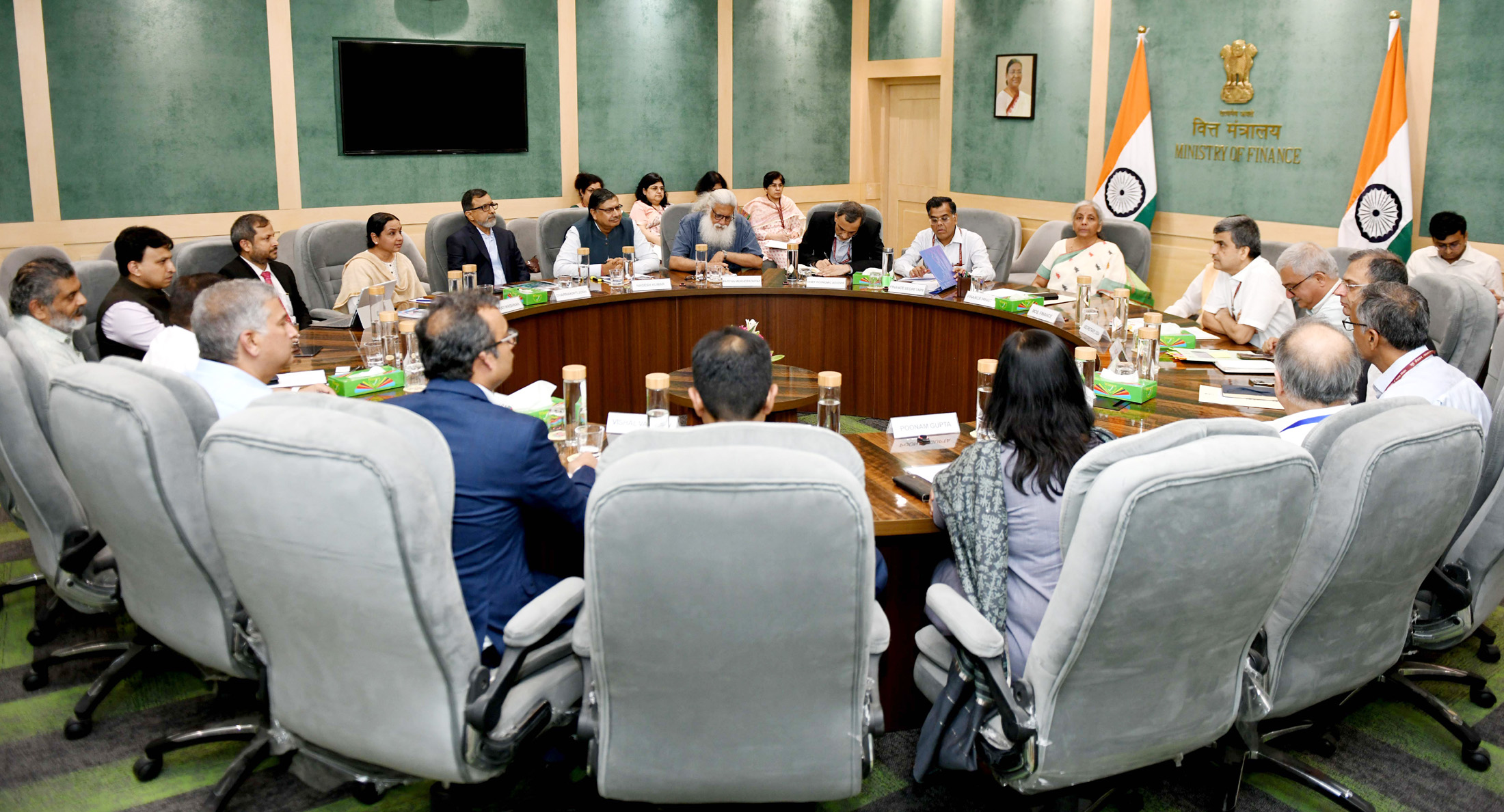By prioritizing investments in infrastructure, education, healthcare, and other critical sectors, governments can stimulate economic growth while maintaining fiscal discipline: ASSOCHAM President Sanjay Nayar


ASSOCHAM President Mr Sanjay Nayar
FinTech BizNews Service
Mumbai, June 20, 2024: Welcoming emphasis on fiscal consolidation, ASSOCHAM today expressed confidence that the Narendra Modi 3.0 government would proceed with a strategic focus on capital expenditure, prioritizing investment in infrastructure, education and healthcare , in the forthcoming Union Budget for 2024-25.
''We welcome the Government’s emphasis on fiscal consolidation and believe it would proceed with a strategic focus on increasing capital expenditure. By prioritizing investments in infrastructure, education, healthcare, and other critical sectors, governments can stimulate economic growth while maintaining fiscal discipline.” ASSOCHAM President Mr Sanjay Nayar said in his pre-Budget consultations with the Finance Minister Mrs Nirmala Sitharaman. The Union Minister of Finance and Corporate Affairs, Smt. Nirmala Sitharaman chaired the first Pre-Budget Meeting with leading economists to take suggestions for the upcoming Union Budget 2024-25, in New Delhi on June 19, 2024.
Another key area of focus , Mr Nayar said, should be the MSMEs . “There is a pressing need to establish a dedicated working group tasked with identifying underperforming schemes related to Micro, Small, and Medium Enterprises (MSMEs). Such an initiative would systematically assess the effectiveness of current programs, pinpointing areas where interventions are falling short in supporting MSMEs. By conducting thorough evaluations and gathering empirical data, this group can recommend targeted reforms or adjustments to policies, ensuring that government initiatives align closely with the evolving needs and challenges faced by MSMEs''.
The ASSOCHAM pre-Budget presentation also suggested establishment of MSME universities across the country. Such moves would boost employment generation through MSMEs, while enhancing entrepreneurship in the country.
''There is a compelling need to establish MSME universities with specialized courses and training programs aimed at enhancing the competitiveness of small and medium enterprises (SMEs) on a global scale These universities would serve as hubs of knowledge and innovation, equipping MSMEs with essential skills in areas such as technology adoption, financial management, quality management, market strategy, and compliance with international regulations'', the ASSOCHAM President said.
In connection with the development of the Northeast Region, Mr. Nayar suggested the need to augment infrastructure development in the region as well as set up more industrial parks and SEZs there.
The chamber suggested raising the basic income tax exemption limit from ₹ 3 lacs to ₹ 5 lacs for providing significant relief to individual taxpayers and increasing their disposable income.
Besides, the current standard deduction which has remained unchanged at Rs 50,000 since 2019 should be increased to Rs 100,000 to adjust for inflation and rising living costs. It may also be linked to the salary as a multiple thereof for a meaningful impact.
The chamber emphasised on the need for boosting consumption of the middle class by extending tax benefits , leaving them with more disposable income. This kind of tax concessions to the middle class would lead to a sustainable growth in consumption, without leaving an expansionary impact on the economy and the fiscal position of the government.
Mr Deepak Sood Secretary General ASSOCHAM, said that to give a boost to the manufacturing and service sectors such as logistics, renewables, healthcare etc, a reduced tax rate similar to section 115 BAB of the Income Tax Act should be introduced for new companies. The benefit should also be extended to new investments or expansion made by the existing companies.
He also put emphasis on further improving the ease of doing business and setting up of a National Single Window System (NSWS). He suggested further decriminalizing of economic offenses, stating this would create a more business-friendly environment.
ASSOCHAM also pressed for addressing the disparity in taxation by introducing adjustments that align the tax treatment of bonds with other asset classes. Other focus areas should be reducing the cost of logistics to 8% from the current 14-18% of GDP. There is a need to develop separate tracks for cargo and passenger trains, enhance the adoption of advanced technologies for end-to-end supply chain visibility and maximizing the use of waterways for transporting goods.